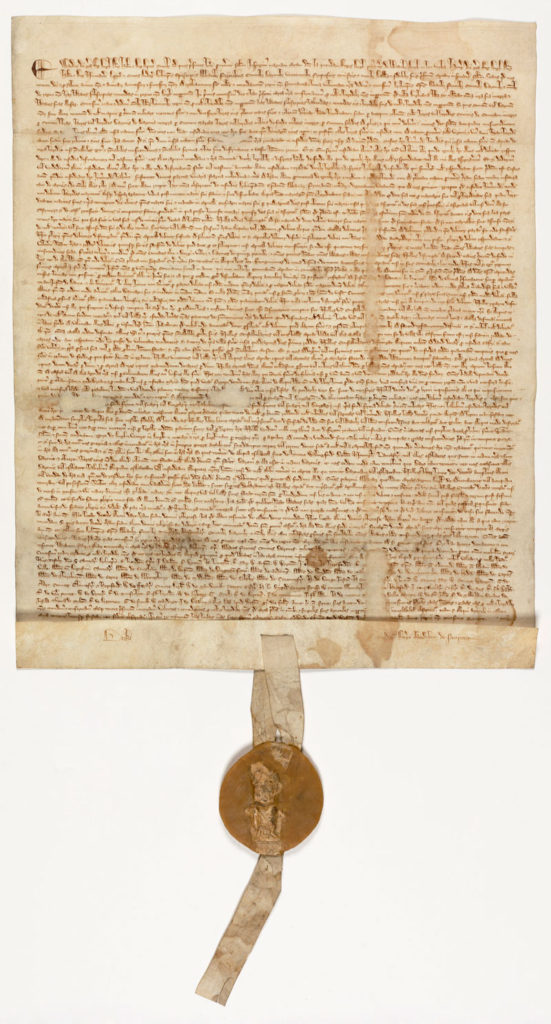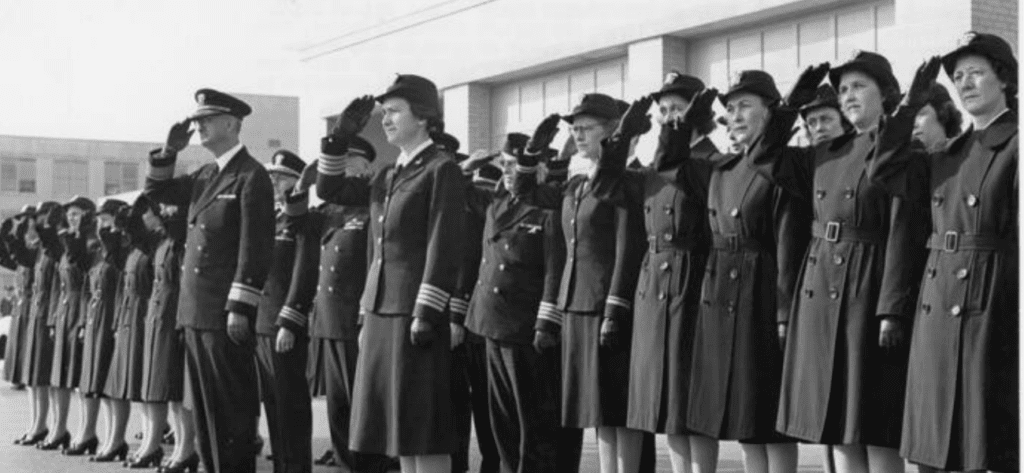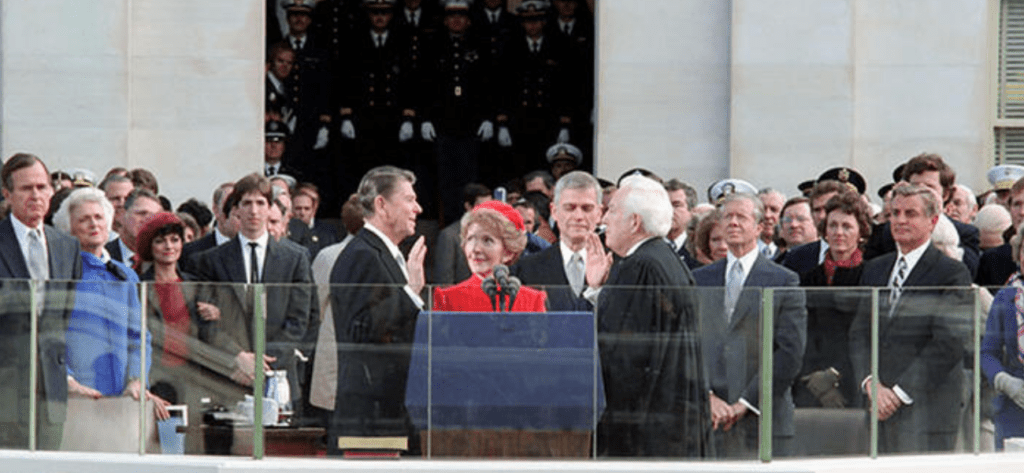In 1215, the despotic King John of England was confronted by an assembly of barons demanding that traditional rights be recognized, written down, confirmed with the royal seal, and sent to each of the counties to be read to all freemen. The king agreed, binding himself and his heirs to grant “to all freemen of our kingdom” the rights and liberties described in the great charter, or Magna Carta. From 1215 through 1297, the king’s successors reissued Magna Carta. In 1297, to meet his debts from foreign wars, King Edward I imposed new and harsher taxes, provoking another confrontation with the barons. This resulted not only in the reissue of Magna Carta, but for the first time, its entry into the official Statute Rolls of England.
The 1297 document represents the transition of Magna Carta from a brokered agreement to the foundation of English law, establishing the idea that people possess certain unalienable rights that cannot be overruled, even by a king. Magna Carta also guaranteed due process of law, freedom from arbitrary imprisonment, trial by a jury of peers, and other fundamental rights that inspired and informed the Founding Fathers of our nation when they wrote the Declaration of Independence, United States Constitution, and Bill of Rights.
Only four originals of the 1297 Magna Carta remain. Thanks to a generous loan from philanthropist David M. Rubenstein to the American people, the National Archives is now home to the only original 1297 Magna Carta permanently displayed in the United States. It is the centerpiece of the National Archives Museum’s latest permanent exhibition, “Records of Rights,” in the David M. Rubenstein Gallery.

Magna Carta
National Archives, David M. Rubenstein Magna Carta Collection




